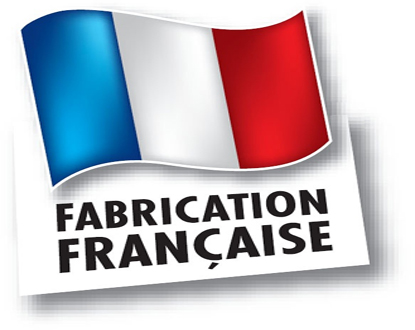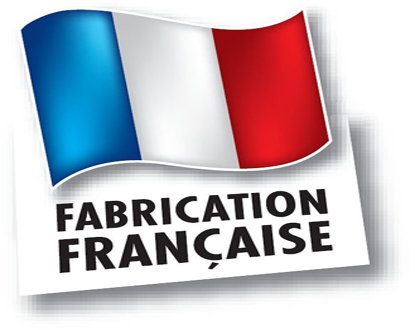It is true that economics is a social science and not an exact science, so anyone can assert what they want without being contradicted (except by the results of their empirical theories once applied and subjected to the test of measurement).
 However, it would be more prudent and responsible not to propagate proposals known to be incorrect in advance, such as this theory that could be called… the “cocorico” economy.
However, it would be more prudent and responsible not to propagate proposals known to be incorrect in advance, such as this theory that could be called… the “cocorico” economy.
This is the case with made in France which returns as a miracle recipe to save French industry, even though key figures in the national budget show a 95 million euro deficit in 2011 and a forecasted increase for 2012 with a growth rate of 1% and unemployment rate of 9.3% (which, increasing, could cross the symbolic 10% threshold in 2012).
But precisely, is buying French a deep trend or a fashionable effect?
It is true that Made in France is a popular slogan during this electoral period where intellectual scope of individuals gives way to a disordered thought that deserves to be better structured, instead of this planing and tinkering.
However, this chrestomathy risks a drift that confines it to “masturbatio grillorum”. In this case, it would be good for our politicians to follow Voltaire’s advice: to do gardening!
Buying locally? A proposition not so anecdotal. As the debt crisis shakes Europe, different parties increasingly propose protectionist measures. In this little game, it’s about who will appear the sharpest…
Just judge for yourself: Rue89 recalls that Marine Le Pen and MP Yves Jego (Radical) both claimed the paternity of a “made in France” label. The MP is also behind a report submitted in May 2010 on this subject, which led to the “Origin France” label.
But Christian Estrosi, Deputy Mayor of Nice, also claims to be “the only one advocating made in France” and relaunches the idea of labeling products manufactured in France and filed, last November at the National Assembly, a European resolution proposal aiming to develop the “Made in France” labeling on food and non-food products by precisely stating the percentage of French components.
But what exactly is made in France? Explanations.
A study by CREDOC (Research Centre for the Study and Observation of Living Conditions) published on December 12 shows precisely that French consumers are the most demanding of locally made products, ahead of Germany, the United States, Italy, Japan, or England.
However, this study warns on two points:
- First, the Made in France trend does not seem made to last. “Buyers are rather old. Young people are clearly in globalization,” it explains. In a few years, the demand is likely to decrease.
Moreover, “it is increasingly difficult to define which product is made in France and to what degree,” notes Pascale Hébel, director of CREDOC.
How politicians plan to develop the “buy French”
Two proposals have been formulated in recent months.
The first, recently highlighted by François Bayrou, proposes a new “made in France” label.
“Industrialists who manufacture in France should be able to say ‘60% or 80% of this product is French’. And even if it sometimes costs more, often it is because the product is of better quality.”
Another proposal echoes producing again in France, “relocating”: that of a tax at European borders. First advocated by Arnaud Montebourg during the PS primary campaign, the idea has since evolved.
Even the UMP has advocated for the implementation of a “reciprocity tax” at Europe’s borders on imported products. This tax would be higher or lower depending on the respect of environmental and social norms by exporting countries.
So, is made in France the new economic El Dorado? Not so sure. These two proposals, while enticing, are not so simple to implement.
The “made in France” label
“With globalization, it is difficult to put a flag on products. It would need to be verified, but that has a cost. And for what interest? The consumer wants to consume well and inexpensively. Such a label would amount to basing a consumption policy on the simple good will of the French,” says Matthieu Crozet, economist and scientific advisor at CEPII (Centre for International Economic Studies and Information).
The European border tax
- “It implies a consumption tax. It is not China that will pay, but the French. It will result in a cost for French purchasing power and well-being. Customs duty implies a negative subsidy, while we would need a positive subsidy for French producers. It is a roundabout solution,” concludes Matthieu Crozet.
The consumer no longer knows where to turn
Example: 90% of the drinks are made in France, declares Coca-Cola in its latest advertising campaign.
Thus, should we drink several liters of Coca-Cola a day to help jobs?
So, what do we prioritize? Health or employment?
Are we aware that in the United States, under the pressure of the frozen food lobby, pizza was classified as a vegetable (tomato sauce is rich in potassium, fiber, and vitamins A and C)!
Will all this lead to a productive pact to raise the level of employment?
Certainly not, and common sense is always preferable to fine incantations. We must forget the re-industrialization of our ancestors and propose a true modern industrial policy.
It must be based on innovative products, those that will integrate into the 21st century and develop from a true policy in favor of research and innovation. And all this, with a strategy for university education, competitiveness clusters, research tax credit, and the defense of intellectual property.
Instead, we are caught in this whirlwind of slogans without effect.
And all together, without exception: it is true that, as a connoisseur of the political world once said, fools always flock together!
Should we invoke “de miraculis sui temporis”?
In the meantime… happy (and costly) new year to all!



